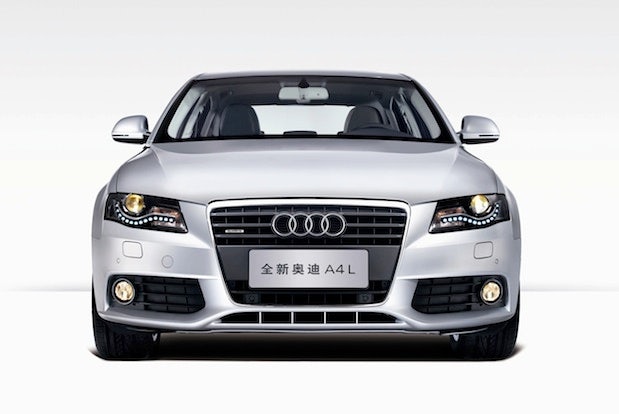
China’s ongoing anti-corruption crackdown hit luxury sales hard in 2013, but new sales reports show that foreign luxury auto companies still had a banner year. However, a new Chinese government regulation restricting military use of foreign autos shows that efforts to create a thorny environment for these brands is likely to continue—and possibly intensify—in 2014.
The Chinese government and state-run media made several efforts at bad PR for foreign luxury auto brands in 2013, and a newly announced restriction strongly suggests that this trend will continue in the coming year. According to a report in Bloomberg today, Xinhua News Agency reported that China’s military will no longer purchase foreign-branded vehicles, a measure approved by President Xi Jinping and the central military commission. This new regulation is a more explicit critique of purchasing foreign auto brands than a previous rule enacted in April banning the use of military license plates on luxury autos. It’s not just sales to government officials that have been a focus—this summer, Chinese state-run media outlets released several reports accusing foreign auto companies of price-gouging on models exported to China.
Nonetheless, Chinese consumers continued the mad rush to buy foreign luxury cars in 2013, especially in the mass luxury segment. BMW Group, which just reported its 2013 earnings report, saw a 19.7 percent increase in mainland China deliveries of BMW and MINI vehicles, for a total of 390,713. Meanwhile, competitor and government official favorite Audi saw China sales rise by 21.2 percent in 2013, helping to propel parent company Volkswagen to the position of top foreign auto maker in China. In addition, Daimler reported an 11 percent jump in Mercedes-Benz China sales.
The ultra-luxury segment remained a mixed bag in 2013 as ostentatious displays of wealth were a direct target of the anti-corruption campaign. While Volkswagen’s Porsche posted 20 percent annual growth in the China market, Bentley’s deliveries to China went down from 2,253 cars in 2012 to 2,191 in 2013, despite posting 19 percent global growth overall. Volkswagen reported today that China remains the second-largest market for Lamborghini, but has not reported the total number of China deliveries, and BMW also excluded China-specific sales numbers for Rolls-Royce in 2013, instead stating that it had been “an outstanding year” for the brand.
However, as the government continues to go after foreign luxury auto brands, expectations are lower for the year to come. BMW just stated that it is expecting “low” double-digit growth in 2014, in contrast to this year’s numbers.
The Chinese government's dream is likely to see a day when homegrown luxury models such as Hongqi are able to compete with these foreign brands, but popular sentiment still remains opposed to purchasing a high-end Chinese vehicle. According to a McKinsey survey of Chinese car customers from earlier this year, 59 percent said they wouldn’t choose a Chinese brand, and 16 percent said they believed that a Chinese brand will never be able to produce a luxury model that receives global recognition.